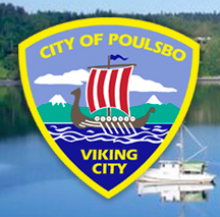Washington State Law Change Transformed Fiber Project in Poulsbo
The story has been updated to fix errors. The original story described the project as a partnership but we have since learned it is a project of the Kitsap Public Utility District that is encouraged by the City.
We reported on Poulsbo, Washington, last fall after the community began a wireless pilot project providing a free high-capacity wireless mesh network throughout downtown. Kitsap Public Utility District is running the project, with encouragement from the City. An interview with Poulsbo City Council member Ed Stern filled in more details on this local project.
A wireless mesh pilot project was not the original plan. The public utility district had been investing in a fiber optic network to reduce costs for local government and provide better broadband for schools and hospitals. Stern and other city leaders also recognized that encouraging telecommuting would keep local dollars in the community. Poulsbo is very close to Seattle and city leadership hoped to draw employees from Seattle offices and encourage economic development. They offered a high quality of life and knew better broadband would draw more employers to Poulsbo.
The partners installed a fiber backbone throughout the city and had planned to expand last mile connections in the near future. Poulsbo also codified changes in conduit policy with new ordinances to better manage public rights-of-way. The code requires private providers to first use existing city conduit and the city reserves the right to lease it to them. This policy prevents unnecessary wear and tear and traffic disruption on local streets.
However, the state legislature erected barriers that derailed the full project by revoking PUD authority to offer direct retail services. To this day, public utility districts are required to wholesale access, which rarely creates enough revenue to justify the initial cost of building networks. Community leaders knew that wholesale-only models carry more risk because they split an already tight revenue stream. With the change in state law, the community re-evaluated the fiber network plan.



